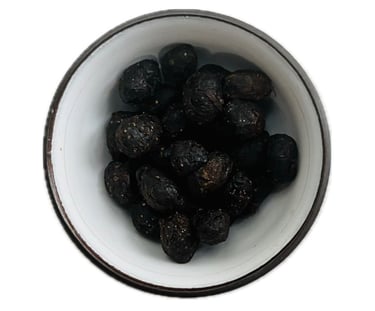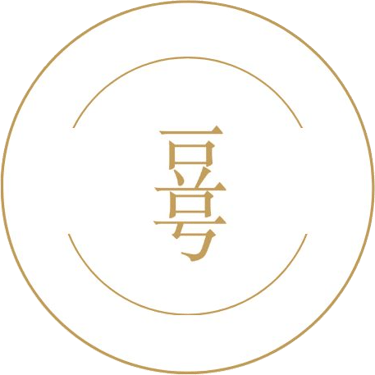Yongchuan Douchi
Place of Origin
Yongchuan, Chongqing, China
Description
Yongchuan douchi appears in granular form, resembling a black raisin, with a plump and firm texture, shiny black color, and mouth-melting consistency. It’s salty and imparts a long-lasting umami flavor and serves as a crucial seasoning in Sichuan cuisine, sometimes even replacing salt, enhancing both meat and vegetable dishes.
Technical Aspects
Yongchuan douchi is a type of fermented soybean. Unlike other douchi varieties, the microorganism involved in its initial fermentation process, known as qu-making, is Mucor, rather than the more common Aspergillus oryzae. Mucor prefers low temperatures and cannot survive in environments exceeding 20 degrees Celsius. Therefore, traditional Yongchuan douchi production is seasonal, with the initial fermentation process taking place between the 19th solar term, "lidong" (beginning of winter), according to the traditional Chinese calendar, and the 2nd solar term, "yushui" (rain water), of the following year, which falls between November and February. Additionally, the second fermentation process, known as aging, for Yongchuan douchi is much longer compared to regular douchi, lasting approximately one year, whereas regular douchi typically undergoes the second fermentation for only about one month.


